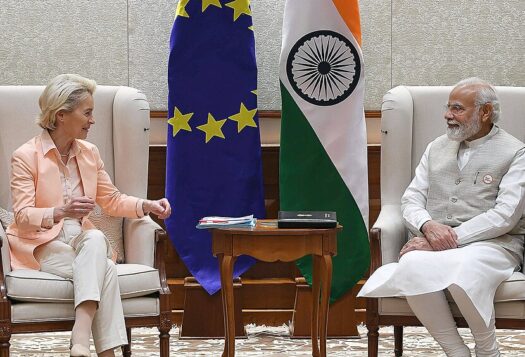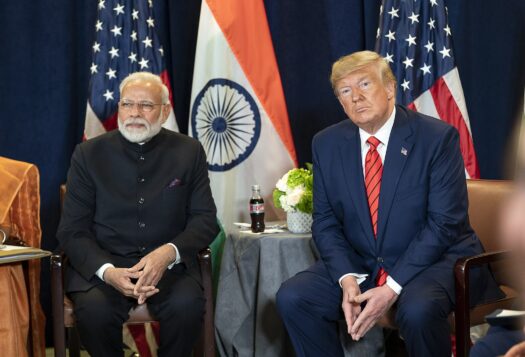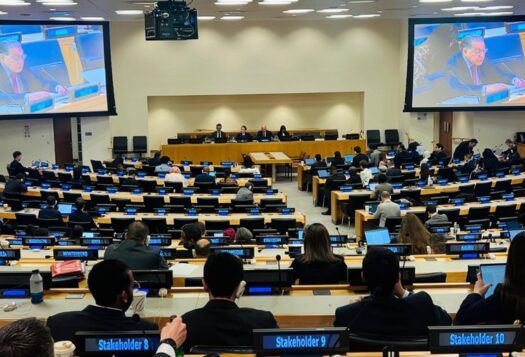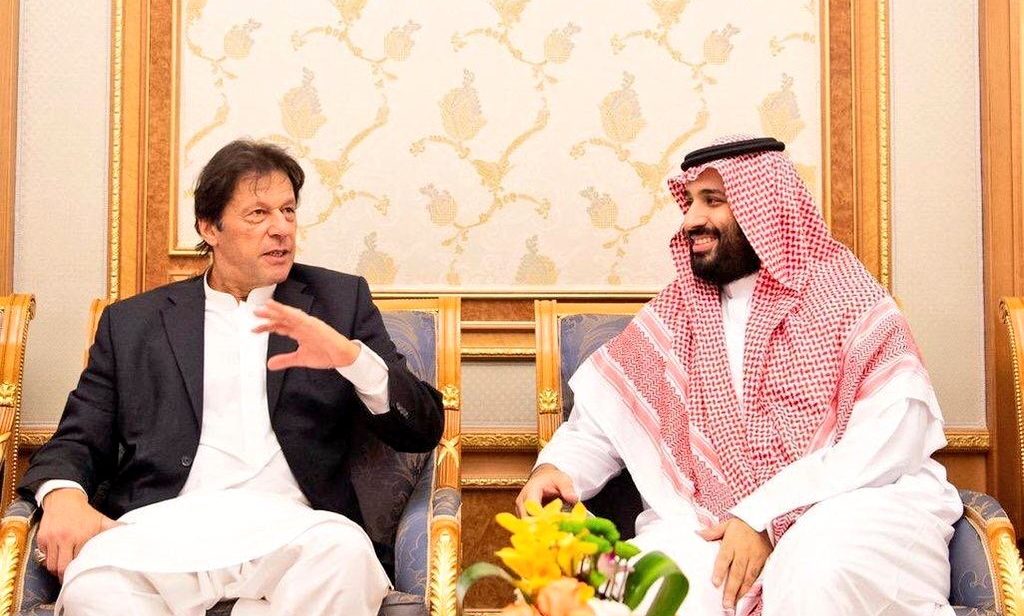
On September 15, 2020, Foreign Minister Sheikh Abdullah bin Zayed of the United Arab Emirates (UAE) and Foreign Minister Khalid bin Ahmed Al Khalifa of Bahrain met at the White House to sign separate bilateral deals normalizing their relationship with Israel. Called the Abraham Accords, the historic agreements call for opening embassies, enabling tourism and direct flights, cooperation on energy, and intelligence sharing. While the Israel-Bahrain deal is primarily declarative, the Israel-UAE deal is more detailed in the steps both countries will take to normalize relations. Both of these deals will impact the Saudi Arabia-Iran rivalry, which has already spilled over to South Asia, where Pakistan, as a friend of both, has had to strike a delicate balance between the two rivals. Pakistan may even come under pressure from the UAE, another close ally, to eventually normalize its own relationship with Israel. As these new deals reshape the Gulf, their impact on Pakistan’s bilateral relationship with Saudi Arabia, and how this impacts its economic and geostrategic interests, is of immediate concern for Pakistan—especially since the relationship seems to be on a downward trajectory.
The Latest Diplomatic Spat
Pakistan and Saudi Arabia have deep economic and political ties. While Pakistan considers itself the leader of Muslims in South Asia, it also adheres to Saudi leadership—openly agreeing that Saudi Arabia is the leader of the Muslim world and caretakers of the two holy cities, Medina and Mecca. Saudi Arabia in turn has funded Pakistan’s madrassa network, which predominantly follows Wahhabism. Economically, Saudi Arabia has almost always come to Pakistan’s financial rescue—and Pakistan has almost never paid back the loans. For example, in 2018, Saudi Arabia agreed to a USD $6 billion aid package to help Pakistan with its balance-of-payment issues, in which USD $3 billion were disbursed immediately. Pakistan also relies heavily on Saudi oil. In return, Pakistan exports labor to the kingdom. Pakistanis make up Saudi Arabia’s second largest migrant community with over two million Pakistanis working in Saudi Arabia. The remittances from Saudi Arabia and the UAE play a significant role in Pakistan’s economy.
As these new deals reshape the Gulf, their impact on Pakistan’s bilateral relationship with Saudi Arabia, and how this impacts its economic and geostrategic interests, is of immediate concern for Pakistan—especially since the relationship seems to be on a downward trajectory.
Pakistan and Saudi Arabia, however, have been less in sync on political issues. The latest dispute began in late 2019 after Pakistani Prime Minister Imran Khan decided not to attend the Kuala Lumpur summit due to pressure from Riyadh. Malaysia had organized the summit to discuss Islamophobia and poverty within the Muslim world. Analysts suggested that the summit could be a potential starting point for a new—and rival—regional organization to the Saudi-led Organization of Islamic Cooperation (OIC). While Malaysian officials denied this allegation, Malaysia pointedly did not invite Saudi Arabia and other members of either the OIC and the Gulf Cooperation Council (GCC). Instead, Malaysia invited Iran, Turkey, Qatar, and Pakistan. Pakistan’s absence came as a surprise as Khan had not only shown his support for the summit, but had announced his plans to attend. It was only after visiting Saudi Arabia a week before the summit that Khan changed his plans—although later expressed regret for not attending the summit.
The relationship dipped lower last month. On August 5, 2020, the one-year anniversary of India’s revocation of Kashmir’s autonomy and the subsequent blackout that followed, Pakistan’s foreign minister, Shah Mehmood Qureshi, demanded that Saudi officials call a meeting of the OIC to discuss the situation in Kashmir. He also stated that if Saudi Arabia was unable or willing to do so, then Pakistan would look elsewhere for regional support. Saudi Arabia responded swiftly and harshly—it immediately recalled a USD $1 billion loan that was part of the USD $3 billion loan from 2018, and did not renew the USD $3.2 billion oil credit that expired in May 2020.
Explaining Riyadh’s Ire with Islamabad
Saudi Arabia’s annoyance with Pakistan stems from two of Pakistan’s foreign policy decisions. The first is Pakistan’s refusal to send troops as part of the Saudi-led coalition to Yemen in 2015. The second is Pakistan’s positive—and strengthening—relationship with Iran.
The Saudi-led war in Yemen has become a global humanitarian crisis. 3.65 million Yemenis have been displaced and tens of thousands of children have died of starvation. Just over five years ago, in March 2015, Saudi Arabia launched an offensive against Houthi rebels in Yemen, who are backed by Iran. While the UAE and other Gulf states joined the Saudi coalition, Pakistan opted to remain neutral. Although Saudi Arabia stated that it did not need the Pakistani military to become a part of the coalition, the Kingdom, along with the UAE, was furious at Pakistan’s refusal. Both Saudi Arabia and the UAE even cited negative economic and political consequences for Pakistan. But Pakistan stood its ground, stating that it would remain true to its Parliament, who had voted against sending Pakistani troops to join the Saudi-led coalition. The war, currently in its sixth year, and has shown no signs of abating. In 2019, even the UAE announced a withdrawal of its troops from Yemen. Although Pakistan did send 1,000 troops to Saudi Arabia in 2018—causing tensions between its own civilian and military institutions—Saudi Arabia has not forgotten Pakistan’s defiance in what it considers the Kingdom’s time of need.
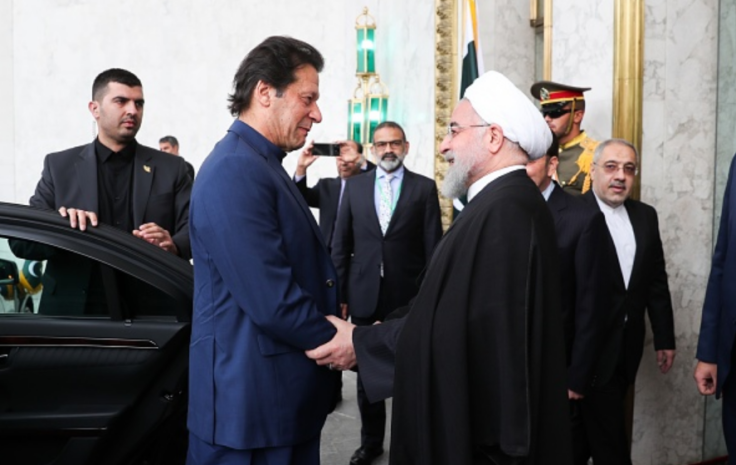
The growing friendship between Pakistan and Iran is another reason Riyadh is frustrated with Islamabad. While Pakistan has never been overly close to Iran, the Saudi-Iran rivalry—and subsequent proxy war—has come to define the Middle East. In South Asia, the rivalry has pushed Pakistan and India both to simultaneously manage their own strategic bilateral relations with Iran and Saudi Arabia while fending off becoming pawns in yet another Middle Eastern war. Though the Indo-Pak relationship is not focused on the Saudi-Iran rivalry, the rivalry has increased tensions between the South Asian neighbors. Like Pakistan, India has a sizeable migrant-worker community that works in the Gulf and helps drive those economies. In turn, the remittances from the migrant communities help the Indian economy as well. More significantly, India is emerging as vital trade partner for Gulf countries—which is one of the key reasons Saudi Arabia and other Gulf states have not issued any statements against India’s lockdown of Kashmir. In fact, just a few weeks after the lockdown, the UAE presented Prime Minister Narendra Modi with its highest civilian award for recognizing India’s efforts in improving their bilateral relationship with the Emirate. Pakistan, of course, is not keen on this emerging dynamic.
Pakistan’s connection with Iran, however, is not simply in response to Saudi Arabia’s developing relationship with India. Pakistan and Iran share a border, and Pakistan’s sizeable Shia population often perform religious pilgrimages to various sacred Shia sites in Iran. Pakistan has also relied on Iranian electricity since 2012. Unlike Saudi Arabia, Iran criticized India over Kashmir. Iran has also emerged as Pakistan’s ally as the U.S. war in Afghanistan winds down as both countries want a stable Afghanistan and prefer a Kabul that views both Tehran and Islamabad favorably. Finally, while Pakistan’s relationship with the United States is complicated, it is still significantly better than Iran-U.S. ties. As such, Iran has looked toward Pakistan as a mediator between itself and the United States—and even between itself and Saudi Arabia.
In addition to these two factors, there is a less obvious factor that is also causing ire in Riyadh: Pakistan’s roaming eyes. For example, as Saudi Arabia has steadily increased its oil imports to Pakistan, Pakistan is also looking to import liquefied national gas from Qatar and Chinese-backed coal companies for generating electricity nationwide, which is causing concerns in Riyadh. More recently, when Saudi Arabia recalled its USD $1 billion loan to Pakistan, China stepped in with a replacement loan. While Saudi Arabia’s relationship with China is not antagonistic, Saudi Arabia’s inability to make Pakistan into its pawn despite its economic aid and religious influence has been frustrating for the Kingdom.
Focusing on the Transactions that Matter
A few days after criticizing Saudi Arabia for not doing more on Kashmir, Foreign Minister Qureshi backtracked, stating that the OIC had passed several resolutions on Kashmir that sided with Pakistan. Chief of Army Staff General Qamar Javed Bajwa also visited the Kingdom to dispel any tensions.
So where is the Saudi Arabia-Pakistan bilateral relationship headed? It could worsen, which would be detrimental for Pakistan. Alternatively, Pakistan could keep backtracking and avoid being transparent about its frustrations, which would give the Saudis the upper hand in the relationship. What is needed, therefore, is something in the middle, and involves Pakistan taking a balanced, nuanced approach to the relationship while also setting practical priorities for its foreign policy. For example, Khan declared that Pakistan would never normalize relations with Israel until Palestinians were afforded their rights. Khan is correct to speak out against Israel’s continued annexation of Palestinian land, and abuse and disenfranchisement of the Palestinians as a people.
Without a strong economy, Pakistan lacks the necessary leverage to ease the plight of the Palestinians in any meaningful and constructive way. Pakistan’s foreign policy success, therefore, is closely tied to its economic development and advancement.
But what Pakistan’s foreign policy establishment needs to ask itself is: what can it do for the Palestinians besides providing rhetorical support? Without a strong economy, Pakistan lacks the necessary leverage to ease the plight of the Palestinians in any meaningful and constructive way. Pakistan’s foreign policy success, therefore, is closely tied to its economic development and advancement. A strong economy that attracts foreign direct investment and has a stable currency will ultimately allow Pakistan to create stronger relationships with the GCC and OIC, and other regional organizations operating within the broader Muslim world. More importantly, it will finally give Pakistan the freedom it craves from Saudi Arabia and other Gulf States that primarily view a relationship with Pakistan as a second-tier priority.
The Muslim world is changing and alliances are shifting and entering new, unchartered territories. For instance, as Pakistan and Saudi Arabia have drifted apart, China has ventured further toward Pakistan. It is time for Pakistan to think strategically and practically about its goals, which should include establishing a stable economy and solidifying its democratic institutions to give itself more flexibility in its foreign policy.
***
Click here to read this article in Urdu.
Image 1: Pakistan PMO via Twitter
